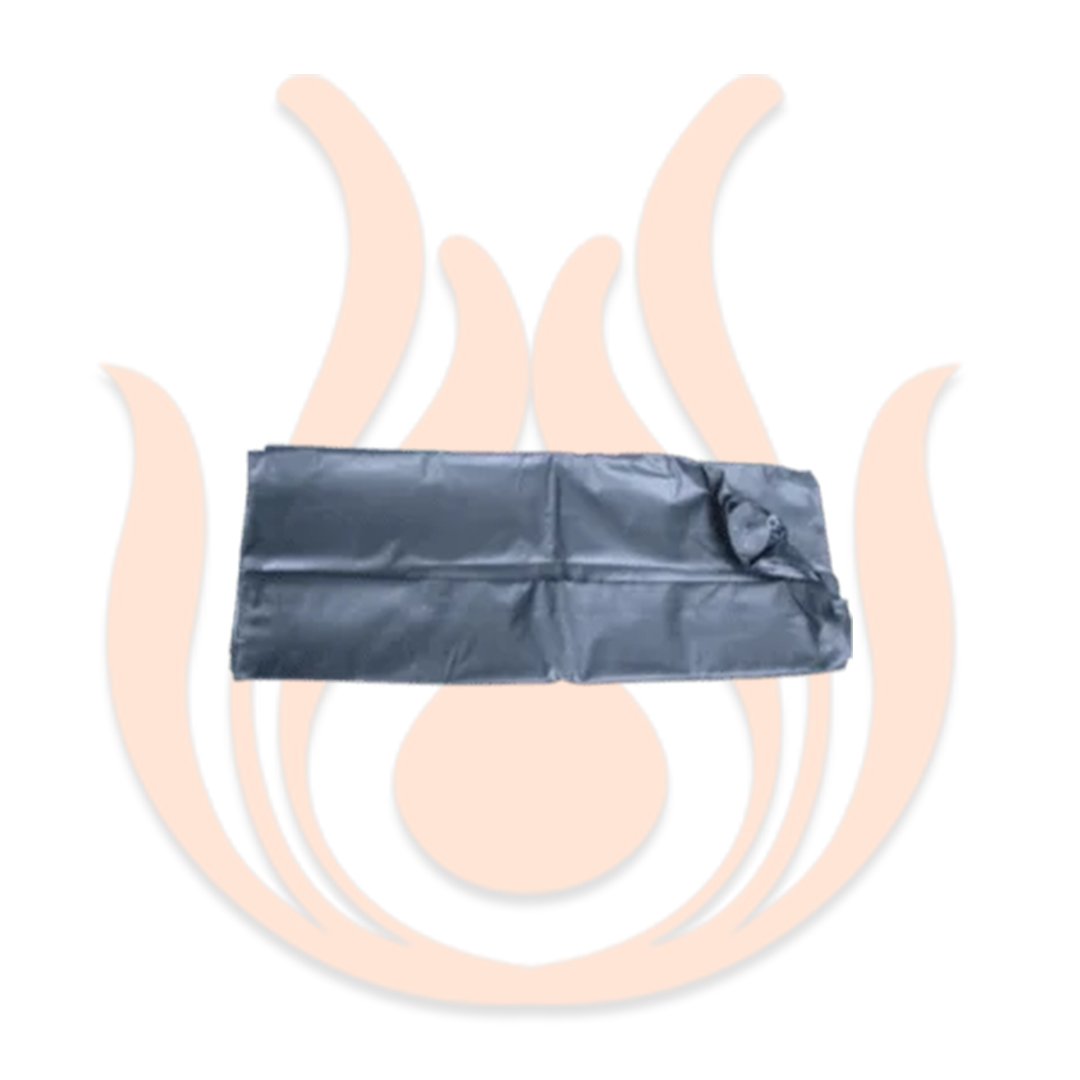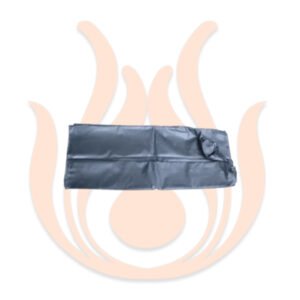Tirpal
- High Quality Materieals
- Compliance with Standards
- Clear product information
- Warranty & Supports
- Product testing & Certification
- Delivery & Policy
- Ask a Question
- Estimated Delivery: 5 Days – 10 Days
- DESCRIPTION
Tirpal (also spelled tarpaulin) refers to a large, flexible sheet made from strong, durable materials like polyethylene, canvas, or PVC. It is typically used in construction machinery and other heavy-duty applications to cover, protect, or shield equipment, materials, or work areas from environmental elements such as rain, dust, sun, or wind.
In construction machinery, tirpal is often used for:
- Protection: Covering equipment like excavators, cranes, or construction materials to protect them from weather conditions (rain, UV rays, dirt, etc.) that could cause rust, wear, or damage.
- Storage: Used for temporary shelters or to cover materials like cement, steel, or bricks to keep them dry and safe from the elements.
- Versatility: It’s also employed to cover trucks or vehicles transporting materials, ensuring that the load stays secure and protected during transit.
The materials used in tirpal make it water-resistant, durable, and capable of withstanding harsh environments, making it a common and essential tool on construction sites.
The specifications of a tirpal (or tarpaulin) used in construction machinery can vary based on the material, thickness, and application. However, here are some common specifications to consider:
1. Material
- Canvas: Made from cotton or synthetic fibers, canvas tarpaulins are durable, breathable, and often used in moderate conditions.
- Polyethylene (PE): Lightweight, water-resistant, and often used for general protection. Polyethylene tarps are UV resistant, flexible, and provide a good balance of durability and ease of use.
- Polyvinyl Chloride (PVC): Strong and resistant to abrasion, PVC tarps are waterproof, durable, and resistant to chemicals, making them ideal for heavy-duty construction work.
- Coated fabrics: Some tarps are made with a combination of different materials, such as polyester coated with PVC for added strength.
2. Thickness
- Light Duty: Typically 6 mil to 8 mil thickness, used for covering materials and equipment in less demanding environments.
- Medium Duty: Generally ranges from 10 mil to 14 mil, suitable for construction sites where more protection is needed against weather and wear.
- Heavy Duty: 16 mil to 20 mil, often used for long-term protection in harsh environments, such as covering machinery, construction equipment, or large construction sites.
3. Size
- Standard Sizes: Tarpaulins come in various sizes, typically ranging from 6×8 feet to 40×60 feet or larger, depending on the specific requirements. Custom sizes can also be made to fit specific needs.
- Custom Sizes: Available upon request, especially for large equipment or specific site coverage needs.
4. Weight
- Lightweight: 120g to 180g per square meter (gsm).
- Medium Weight: 200g to 300g per square meter.
- Heavy Weight: 350g to 500g per square meter, used for construction machinery or materials in more challenging environments.
5. Color
- Green: Common for general construction use.
- Blue: A widely used color for light-duty tarps.
- Black: Often used for industrial or heavy-duty applications because it provides better UV protection and hides dirt and wear.
- Silver or Reflective: Used in areas where UV protection and heat resistance are important.
6. Reinforced Edges
- Eyelets: Tarpaulins typically feature reinforced edges with metal grommets (eyelets) spaced around the perimeter, usually at 1- to 3-foot intervals. These eyelets allow the tarp to be tied down securely to machinery or structures.
- Webbing: Some tarps are reinforced with heavy-duty webbing around the edges for additional strength and resistance to tearing.
7. UV Protection
- Many tarpaulins, especially those made of polyethylene or PVC, are treated with UV inhibitors to protect against degradation from exposure to sunlight. This is especially important in construction machinery where the tarp is exposed to the sun for long periods.
8. Waterproofing
- Water Resistance: Most tarpaulins are waterproof or highly water-resistant, making them ideal for protecting equipment and materials from rain and moisture.
- Sealed Edges: Some high-quality tarps have heat-sealed edges to prevent water from leaking through the seams.
9. Fire Resistance
- Fire-Retardant Options: Some construction tarps are made from fire-resistant materials or treated with fire-retardant chemicals to prevent ignition in high-risk areas.
10. Tensile Strength
- Tensile Strength: Tarpaulins are designed to withstand significant tension and stress. For construction applications, tensile strength ratings can range from 1,000 to 5,000 pounds per square inch (psi), depending on the material and thickness.
These specifications ensure that a tarpaulin (tirpal) can withstand the harsh conditions of a construction site, providing reliable protection for equipment, machinery, and materials.




